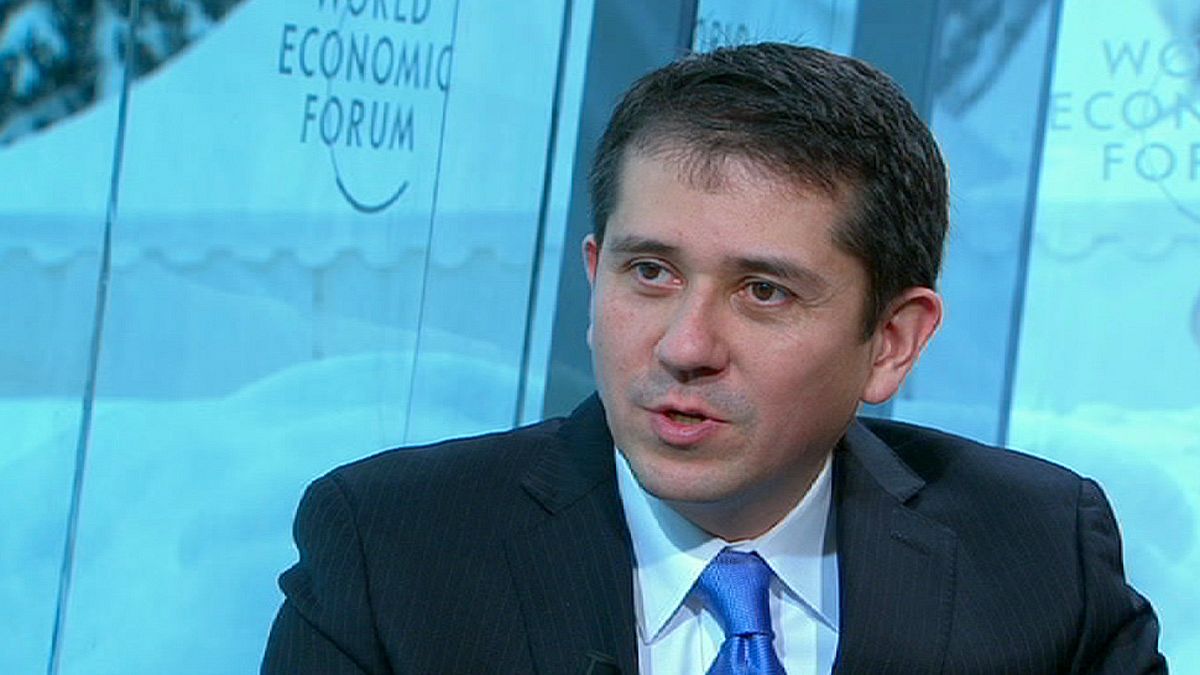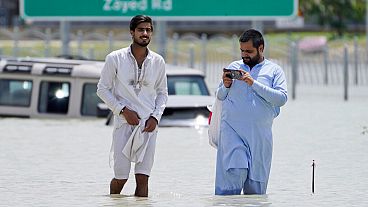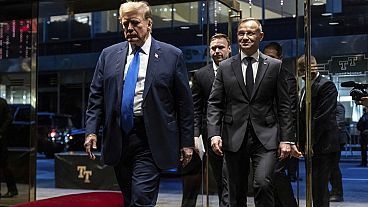As part of euronews’ comprehensive coverage of the World Economic Forum, our reporter in Davos, Isabelle Kumar, spoke to the event’s organiser to get his thoughts on the immediate future.
“Lee Howell, many thanks for joining us on euronews. Fundamental to the Global Risk Report is this concept of dystopia, the opposite of utopia, where you envisage a life of hardship, devoid of hope. How realistic a prospect is that?”
Lee Howell, WEF Managing Director:
“We use the notion of seeds of dystopia, so the idea is, before the seeds actually emerge, can we do something? The roots of this all, though, are related to two significant economic risks. One is severe income disparity. The second risk, that is related to this also, is chronic fiscal imbalances. And it’s the combination of the two that is in fact quite daunting.
“In fact the real challenge right now is growth that leads to employment. So how do you go through a period of austerity yet make the cuts that will lead to growth and confidence and more importantly employment? That’s just one piece of this dystopian future.
“But the other side is really around demographics because you have a great part of the population, half the world is under the age of 27 and unfortunately, most of the people in their 20s entering the workforce in many parts of the world are not finding employment opportunities.
“So you see that these various risks can come into play — that’s just in the economic space — that clearly will lead to a sense of dystopia. It will be where you don’t really have hope for the future, you’re about to retire but you doubt your pension is going to be there, you’ve just graduated from university but you doubt a job will be there. In 10 years time, we can really see the reality of the dystopian future.”
euronews: “Implicit in this, I guess, is a failure of global governments. But we’re at a turning point now. Do you think we can rely on our leaders to act and get us out of this potential mess?”
Lee Howell:
“I think the problem is that our leaders are leading in the sense that they try to manage the crisis. Management is very different, in a sense that if you actually know that these are certain times of problems that are not unique but there are tried and true remedies. In most instances, what I’m talking about are challenges that are quite novel, we’ve never really seen this. So you’re going to have to experiment, be bold, have a vision of the future, take risks. Leaders themselves have to take risks to actually deal with these risks. And exercise leadership, right? Not management.”
euronews: “2011 was very much defined, and you touched upon this, by the rise of the Occupy movement’s growing social unrest. Do you think our future is going to be defined by their demands?”
Lee Howell:
“We’ve had political movements; revolutions predate the internet. That’s part of human history and civilisation. What has been consistent here is that people, when they’re frustrated — and here we go back to the notion of dystopia — when they feel that things are not fair and equal, then I think you get a significant response.”“
euronews:
“But this rise of people power basically shows that there’s very little trust in leadership, trust in forums like Davos in some respects. Is Davos out of date?”
Lee Howell:
“No, I think Davos is a reflexion of the reality. People want all the stakeholders to come together and look at the issues together. The history of Davos has been about inclusion and we have all of the top leaders of civil society, particularly NGOs, and other groups.
“But more importantly, at this annual meeting, there’s a small Occupy movement in Davos itself. The leader of that group has been invited to what we traditionally have as an open forum. We’ve asked the head of that movement to join a discussion on rethinking capitalism with the likes of (UK Labour Party leader) Ed Milliband, so we’re very open to it.
“The first issue here is, together, to frame the issues correctly, figure out who needs to be involved, a bit of diagnosis before you prescribe, right? And think before you act, but you have to get the right people together to think, and hopefully get them together also to act.”
euronews: “What about the seeds of hope? Where are they?”
Lee Howell
“Well, they’re in us, right? That’s the history of humanity. We face tough things but we always overcome, and that’s really what keeps us all going, right? That’s part of the human condition.”



